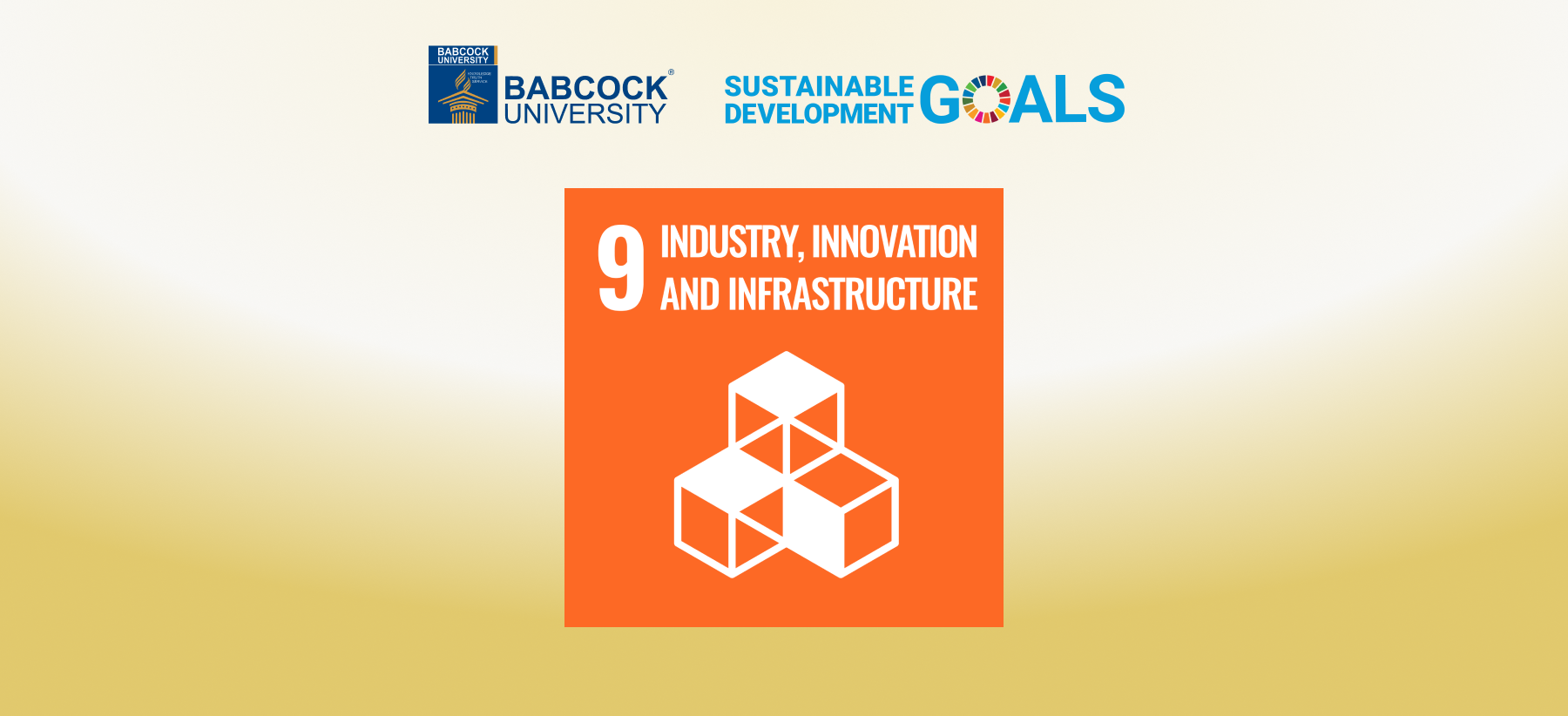| Admin

Babcock University’s Commitment to Industry, Innovation, and Infrastructure (SDG 9): Driving Sustainable Industrial Practices and Knowledge Management
Babcock University’s dedication to fostering resilient infrastructure, promoting inclusive and sustainable industrialization, and supporting innovation is central to its research initiatives. Through studies addressing industrial challenges, innovation in energy use, and waste management, the university contributes to Sustainable Development Goal 9, advancing sustainable practices and knowledge-sharing frameworks.
Addressing Environmental Pollutants and Health Implications
Environmental health is increasingly affected by pollutants from industrial activities. The study, Environmental Pollutants and Oxidative Stress in Terrestrial and Aquatic Organisms: Examination of the Total Picture and Implications for Human Health, explores the impacts of pollution on both ecosystems and human health. By identifying oxidative stress as a key concern, this research underscores Babcock University’s role in advocating for policies that reduce industrial emissions and protect environmental health.
Solid Waste Management for Improved Urban Infrastructure
Effective waste management is essential for urban resilience. The study, Knowledge, Perception, and Solid Waste Management Practices Among Residents of Oshodi-Isolo, Lagos State, examines community perceptions and behaviors in waste disposal, revealing gaps in solid waste practices. This research promotes sustainable infrastructure in waste management, supporting Babcock University’s commitment to developing eco-friendly practices in urban areas.
Coal Energy Consumption and Economic Growth: Balancing Development with Environmental Impact
Balancing industrial growth with environmental sustainability remains a key challenge. The study, Modelling Coal Energy Consumption and Economic Growth: Does Asymmetry Matter in the Case of South Africa?, assesses the long-term environmental impacts of coal energy. Findings highlight the need for cleaner energy alternatives, aligning with Babcock University’s advocacy for sustainable industrial practices.
Overcoming Barriers in Emergency Unit Performance to Strengthen Infrastructure
Access to effective emergency care is a fundamental component of resilient healthcare infrastructure. The study, Provider-Identified Barriers to Performance at Seven Nigerian Accident and Emergency Units, identifies infrastructural challenges impacting emergency healthcare in Nigeria. This research supports the university’s mission to strengthen healthcare systems, ensuring they are equipped to handle emergencies and contribute to robust public infrastructure.
Promoting Knowledge Management for Sustainable Business Growth
Sustainable industry requires effective knowledge management practices. The study, The Linkage Between Knowledge Management Practices and Sustainable Business Growth: Empirical Evidence from Nigeria, explores how knowledge-sharing frameworks influence long-term business viability. By enhancing knowledge management, Babcock University supports innovation and sustainable growth within Nigeria’s industries.
Conclusion
Through its research on pollution control, waste management, and infrastructural resilience, Babcock University’s contributions align with Sustainable Development Goal 9. These efforts foster a stronger, more sustainable foundation for industry, infrastructure, and innovation, paving the way for a more resilient and inclusive future.